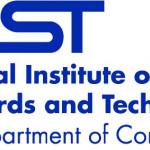- Industry: Technology
- Number of terms: 2742
- Number of blossaries: 0
- Company Profile:
The National Institute of Standards and Technology (NIST) — known between 1901 and 1988 as the National Bureau of Standards (NBS) — is a measurement standards laboratory and a non-regulatory agency of the United States Department of Commerce. The institute's official mission is to promote U.S. ...
A type of Turing machine that uses a queue instead of an infinite tape to simulate a very simple program formulation. A Turing machine is a hypothetical device that manipulates symbols on a strip of tape according to a table of rules. Despite its simplicity, a Turing machine can be adapted to simulate the logic of any computer algorithm, and is particularly useful in explaining the functions of a CPU inside a computer.
Industry:Computer science
A valid inequality for an integer polyhedron that separates the polyhedron from a given point outside it.
Industry:Computer science
A variable-length character coding based on the frequency of each character. The algorithm is similar to Huffman coding, but the trees are kept in the same order as the characters. Two adjacent trees with the least combined frequency are joined as subtrees of a new root. As with Huffman coding, that new tree is assigned the sum of the subtrees' frequencies. Repeat until all characters are in one tree.
Industry:Computer science
A variable-length coding based on the frequency of occurrence of each character. Divide the characters into two sets with the frequency of each set as close to half as possible, and assign the sets either 0 or 1 coding. Repeatedly divide the sets until each character has a unique coding.
Industry:Computer science
A variant of a binary tree where a tree of order n (n>1) has a left subtree of order n-1 and a right subtree of order n-2. An order 0 Fibonacci tree has no nodes, and an order 1 tree has 1 node.
Industry:Computer science
A variant of a bucket trie in which each leaf node for n strings is a bucket allocated to hold exactly n strings.
Industry:Computer science
A variant of a finite state machine having a set of states, Q, an output alphabet, O, transition probabilities, A, output probabilities, B, and initial state probabilities, Π. The current state is not observable. Instead, each state produces an output with a certain probability (B). Usually the states, Q, and outputs, O, are understood, so an HMM is said to be a triple, (A, B, Π). Formal Definition: After Michael Cohen's lectures for CN760. <ul> <li> A = (a<sub>ij</sub> = P(q<sub>j</sub> at t+1
Industry:Computer science
A variant of a hash table in which keys are added by hashing with two hash functions. The key is put in the array position with the fewer (colliding) keys. Some collision resolution scheme is needed, unless keys are kept in buckets. The average-case cost of a successful search is O(2 + (m-1)/n), where m is the number of keys and n is the size of the array. The most collisions is log<sub>2</sub> ln n + Θ(m/n) with high probability.
Industry:Computer science
A variant of a linked list in which each item has a link to the previous item as well as the next. This allows easily accessing list items backward as well as forward and deleting any item in constant time.
Industry:Computer science
A variant of a linked list in which each item has a link to the previous item as well as the next. This allows easily accessing list items backward as well as forward and deleting any item in constant time.
Industry:Computer science
